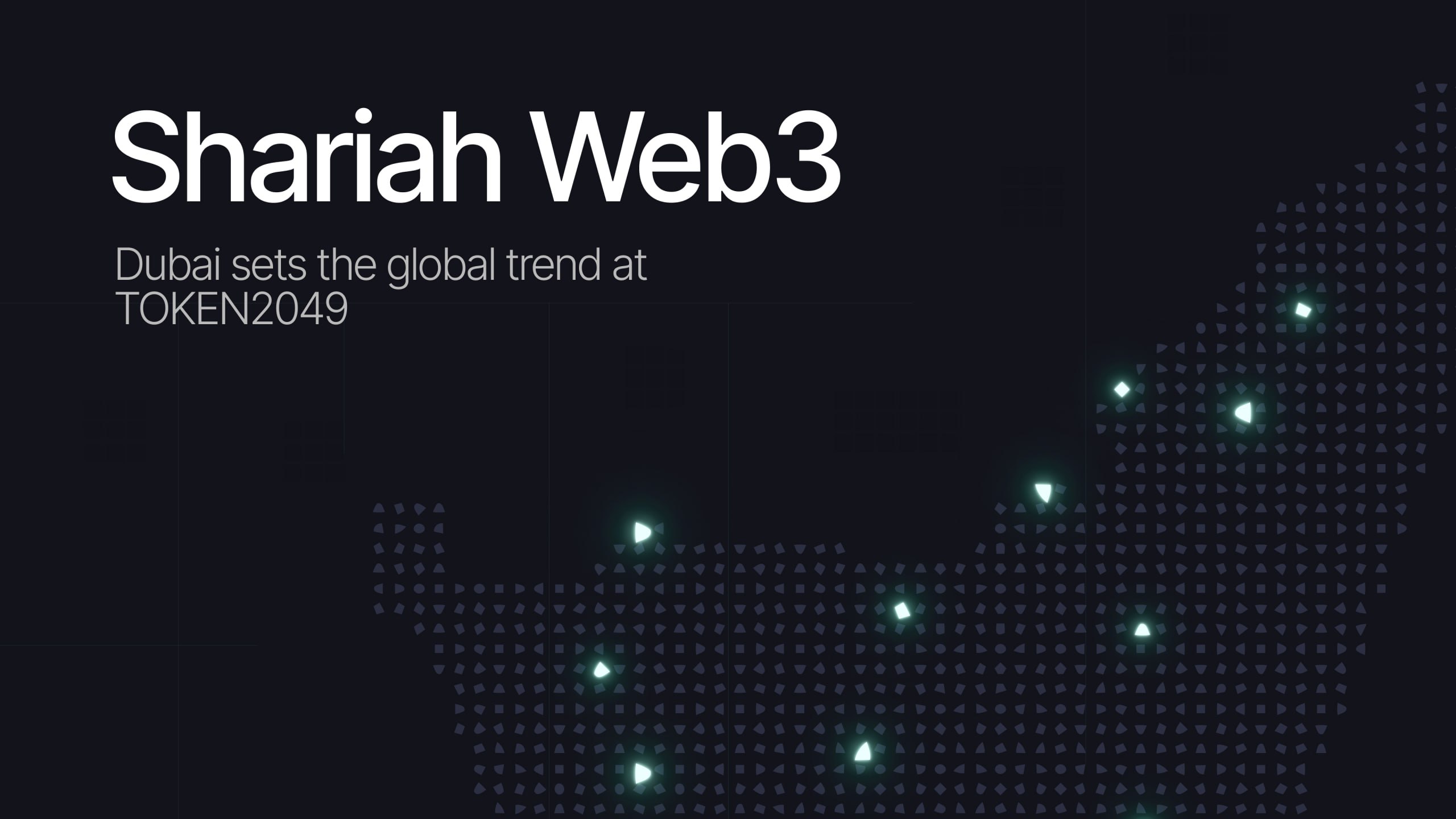When over 15,000 participants, 4,000+ companies, and crypto leaders from more than 160 countries gathered at Madinat Jumeirah in Dubai for TOKEN2049 Dubai 2025, the message was clear: this wasn’t just another tech expo — it was the birthplace of next-gen financial paradigms. At the core of this year’s event stood a powerful and timely idea: Sharia-compliant finance is not only compatible with Web3 — it may define its ethical backbone.
Dubai: The Emerging Capital of Global Crypto Policy
From April 29 to May 1, 2025, Dubai hosted the world’s most anticipated blockchain event. TOKEN2049 featured over 200 speakers — including Binance CEO Richard Teng, Circle CEO Jeremy Allaire, and Tether CEO Paolo Ardoino — and hundreds of side events across TOKEN2049 Week. From high-level forums to yacht meetups, Dubai became the global capital of Web3, bridging East and West through regulation, innovation, and Islamic finance.
As the UAE continues to solidify its leadership in Islamic banking — which reached $620B in assets in 2024 — TOKEN2049 signaled a new phase: the digital transformation of Sharia-compliant finance. The region is no longer merely adapting to global fintech trends — it’s actively shaping them.
Islamic Finance Meets DeFi
Islamic finance, governed by principles such as the prohibition of riba (interest), gharar (speculation), and haram investments (e.g., alcohol, gambling), demands transparent, risk-shared, asset-backed structures. That’s where blockchain and DeFi enter the picture.
At TOKEN2049, panels like “The Rise of Shariah-Compliant DeFi” and “Tokenization of Halal Assets” featured experts from Dubai Islamic Bank, Emirates Islamic, and scholars from Malaysia and Saudi Arabia. They explored how protocols based on mudarabah (profit-sharing investment) and musharakah (joint partnership) can be implemented using smart contracts, while Chainlink oracles offer real-time, tamper-proof financial data.
These principles not only ensure Sharia compliance but also introduce a level of fairness and ethical accountability that is increasingly attractive to global investors seeking sustainable alternatives to conventional finance.
Real-World Cases Presented
- A fintech startup from Abu Dhabi unveiled a platform for tokenized sukuk (Islamic bonds), raising $8M in three days during the event.
- A Sharjah-based project showcased a waqf tokenization platform, collecting $1.5M to restore historic religious sites.
- Emirates Islamic Bank announced its tokenized sukuk platform to launch in 2026, targeting $80M in investments.
These examples weren’t hypothetical. They were up and running, backed by DIFC Innovation Hub and supported by regulatory sandboxes. More importantly, they demonstrated that Islamic fintech is not only technologically mature but also commercially viable.
Tokenizing More Than Just Assets
Islamic finance values real-economy assets. At TOKEN2049, multiple projects showed how tokenization fits Sharia:
- Real estate platforms allowed global investors to buy property shares from $4,000, using musharakah contracts.
- Education tokens were introduced for Sharia training programs, enabling zakat automation and lifelong Islamic education funding.
- Agriculture and healthcare projects in Al Ain demonstrated how tokenized co-ops increased farmer income by 18%.
TOKEN2049 also saw discussions around tokenizing social impact bonds, ethical green sukuk, and digital gold reserves. These discussions reflect the growing desire to bridge tradition with technology while addressing issues like climate finance and ESG through a faith-based lens.
Tokenization wasn’t just innovation — it was inclusion, ethics, and compliance wrapped in a digital form.
AI and Blockchain: A Sharia-Compliant Synergy
TOKEN2049 also featured a groundbreaking synergy: AI-driven Islamic finance on blockchain.
- AI robo-advisors curated halal investment portfolios.
- AI engines screened transactions for non-compliant patterns.
- Smart halal certification systems lowered verification costs by 20–25% in Southeast Asia.
The AI & Advanced Technology Council of the UAE announced plans to support over 500 Islamic fintech startups by 2026.
But with AI came critical questions: Can a machine issue a fatwa? Should AI have the final say in ethical decisions? Experts agreed: AI can assist, but human scholars must retain ultimate authority.
In response, several institutions proposed a Sharia-AI Ethical Charter, outlining what AI can and cannot do in the context of Islamic rulings. As the digital ecosystem expands, such frameworks are vital to maintaining trust.
Ethical Web3 Starts in the Gulf
Dubai’s regulatory clarity, tax incentives, and cultural alignment made it the ideal launchpad. 80% of TOKEN2049 participants flew in from abroad, 70% were C-level executives.
Dubai’s policy stack — from the Dubai Blockchain Strategy to the Zero Crypto Tax Zone — enables scale, while the DIFC sandbox accelerates compliant testing.
UAE’s Web3 vision isn’t just infrastructure. It’s a value system built around fairness, transparency, and religious ethics. The TOKEN2049 venue itself was replete with symbolism: majlis-style forums, prayer-friendly facilities, halal catering — details that resonate deeply with the faith-based investment community.
A Global Export Model for Digital Sharia
Interest came from across the Islamic world:
- Malaysia (Maybank Islamic)
- Indonesia (Bank Syariah Indonesia)
- Saudi Arabia (SABB, STC Pay)
- Turkey (Kuveyt Türk)
- Egypt and even the UK’s Islamic fintech circles
Dubai is now exporting ethical Web3 frameworks built on Sharia to the world — not through theory, but scalable code.
Collaboration between regional regulators and global fintech players also resulted in several MoUs signed at the event, aimed at joint ventures across Asia and Africa. These agreements signal a maturing Islamic digital finance ecosystem.
Conclusion: From Concept to Standard
TOKEN2049 proved that Sharia-compliant DeFi, AI audits, and halal asset tokenization are not fringe. They’re becoming foundational to ethical global finance.
With Dubai at the helm, and Islamic financial structures digitizing rapidly, Digital Sharia isn’t just a regional movement. It’s a new global norm — and TOKEN2049 was its turning point.
A Sharia-compliant, blockchain-based economy is no longer a dream. It’s real. It’s live. It started in Dubai.


